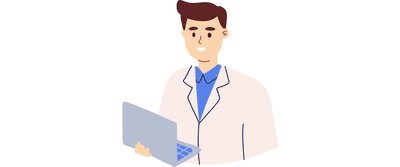![Healthy Matters]() Pharmacist Tips | Dosages | Side effects
Pharmacist Tips | Dosages | Side effects![Healthy Matters]() Nutritionist Tips | Facts | Precautions
Nutritionist Tips | Facts | Precautions![Healthy Matters]() Practitioner Tips | Dosages | Side effects
Practitioner Tips | Dosages | Side effects![Healthy Matters]()
![Healthy Matters]()

The Hong Kong Guide to Urinary Tract Infections (UTIs)
3 min read

Urinary tract infections (UTIs) are incredibly common in women, with some sources estimating that one in every two women will experience a urinary tract infection in their lifetime. A UTI is an infection that occurs anywhere along the urinary tract, made up of the urethra, bladder, ureters and kidneys (in ascending order). Cystitis (bacterial infection of the bladder) is the most common presentation. While UTIs do occur in men, they’re more common in women because female urethra (the tube leading externally from the bladder) is shorter, allowing bacteria to enter the bladder more easily.
There are only two female urologists in private practice in Hong Kong and we spoke to one of them, Dr. Vera Chung 鍾楊醫生, about the symptoms and best treatments for urinary tract infections.
What causes a urinary tract infection (UTIs)?
A UTI occurs when bacteria (and less commonly, a virus or fungus) enters the urinary tract. E. coli accounts for around 80% of community-acquired UTI.
Common risk factors for urinary tract infection include:
- being female
- increasing age
- diabetes mellitus
- a previous history of UTIs
- indwelling catheters
- stone disease
- genitourinary tract anomalies
- voiding dysfunction
Contrary to popular belief, there is no evidence to show that humid weather increases the risk of a urinary tract infection.
What are the main symptoms of urinary tract infections (UTIs)?
The symptoms of a lower tract UTI (cystitis) in the urethra or bladder:
- A frequent or intense urge to urinate with little urine when you do
- A burning sensation during urination
- Bloody, cloudy, odd-smelling, or strangely colored urine
- Pelvic pain
If your lower tract UTI goes unchecked (they can move very quickly so this can occur easily), it may migrate upwards towards your kidneys. An upper tract UTI is very serious and can be potentially life-threatening if bacteria from your kidneys enter the bloodstream.
In addition to the above, symptoms your UTI may have progressed to the kidneys or higher are as follows:

Natural home remedies to prevent urinary tract infection (UTIs)
If you suspect a UTI, it’s important to see a doctor promptly for antibiotics to prevent it from spreading to your kidneys or blood. There are a few things you can do to make yourself more comfortable and prevent the infection from worsening:
- Drink plenty of fluids and urinate frequently to flush out the infected area as much as possible.
- After using the toilet, ensure to always wipe from front to back.
- Try to urinate after having sex to flush any bacteria from your urethra.
- Cranberry extract and D-mannose do not treat UTIs, but they do help prevent them in women who come down with UTIs regularly.
Contrary to popular belief, oral probiotics do not prevent UTIs. Vaginal estrogen and probiotics help to restore vaginal pH-levels and lactobacilli, preventing infection from bowel bacteria.
Medication for urinary tract infections (UTIs)
As mentioned above, you are likely to need antibiotics for your UTI. If you suspect a UTI, your doctor will usually give you appropriate antibiotics and may or may not test your urine to confirm the infection and determine the bacterial strain and drug sensitivity (or less commonly, virus or fungus). With proper use of antibiotics, your infection should clear up in a few days. If not, let your doctor know.
In the private sector in Hong Kong, you can see a GP, gynecologist obstetrician (OBGYN) or urologist for urine testing and prescribed medication. For recurrent UTIs, you may want to see a urologist.
In the public sector in Hong Kong, you can book an appointment at your Cluster’s General Outpatient Clinic but the waiting time will likely be much longer than private sector.
Recurrent urinary tract infections (UTIs)
If you are getting a lot of UTIs, it’s important to talk to your doctor about ways to prevent them. At home, you can practice the healthy prevention methods listed above. To figure out why you’re getting recurrent UTIs, your doctor will talk to you about your lifestyle habits and possibly use a number of diagnostic tools (ultrasound, CT scan or a cystoscopy) to get down to the bottom of your chronic infections.
New research on recurrent urinary tract infections (UTIs)
Recently, there have been other non-antibiotic treatments developed to prevent recurrent UTIs.
- Vaccine
OM-89 is an oral preparation of 18 different serotypes of heat-killed uropathogens. In a systematic review and meta-analysis of four trials that together included 891 participants, OM-89 decreased the relative risk of UTI recurrence by 39%. - Glycosaminoglycan layer replacement therapy
The glycosaminoglycan (GAG) layer forms a mucous barrier over the superficial facet cells of the bladder urothelium. It has been proposed that a deficiency of this layer predisposes people to more UTIs. Injection of GAG into the bladder is currently being investigated as a potential treatment for recurrent UTIs.
Dr. Vera Chung 鍾楊醫生 is an associate of the Hong Kong Urology Clinic. She qualified in 2003 from the University of Hong Kong and was trained as a urologist in Queen Elizabeth Hospital and obtained Fellowship of Royal College of Surgeons of Edinburgh in 2011. Dr. Chung was promoted to associate consultant in Pamela Youde Nethersole Eastern Hospital in 2012. From 2013 to 2015 she has completed two-year European Board of Urology (EBU) Fellowship in endourology and laparoscopy at Nuffield Department of Surgical Sciences, University of Oxford. In Oxford, she also consolidated her training in the management of continence and prolapse problems in the Department of Gynecology.
This article was independently written by Healthy Matters. It is informative only and not intended to be a substitute for professional medical advice, diagnosis or treatment. It should not be relied upon for specific medical advice.

Your health resource, made in Hong Kong
Healthy Matters is Hong Kong’s leading health resource. Our mission is to help you make better health decisions and take control of your health.
Our team of experts is committed to producing reliable health content that is accurate, engaging and relevant, to cover your health & wellness journey from prevention to treatment.
Whether you are looking for trusted information on health conditions, wellbeing or looking for the right doctor or service in Hong Kong, we’re here to help!
Your health matters. Begin your health journey with Healthy Matters today!
































